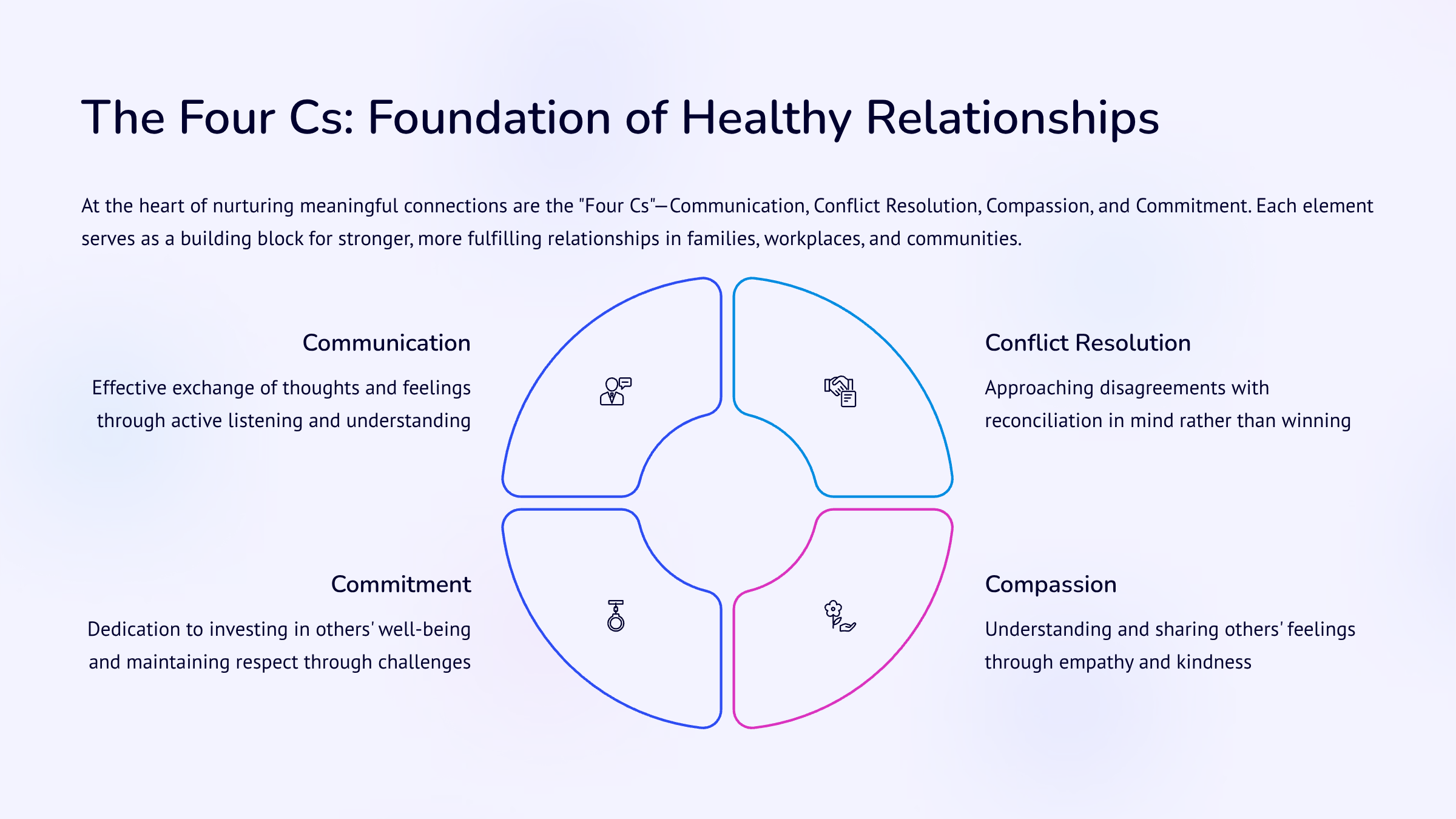
In our fast-paced world, the pursuit
of meaningful relationships often
takes a backseat. Yet, fostering
connections that reflect love,
empathy, and understanding is
essential for personal and communal
growth. Whether within families,
workplaces, or broader communities,
the principles of healthy relationships
can transform how we interact with one another.
The Four Cs: Key to Healthy Relationships
At the heart of nurturing these connections are the "Four Cs"—Communication, Conflict Resolution, Compassion, and Commitment. Each of these elements serves as a building block for stronger, more fulfilling relationships.
- Communication: Effective communication is not just about exchanging words but involves active listening and understanding. Engaging in open dialogues fosters an environment where everyone feels heard and valued. As highlighted in James 1:19, being "quick to listen, slow to speak, and slow to become angry" lays the groundwork for deeper connections.
- Conflict Resolution: Disagreements are a natural part of any relationship. However, how we handle conflicts can either strengthen or weaken our bonds. By approaching conflicts with a mindset of reconciliation—seeking to understand rather than to win—we can foster peace and unity. This principle is beautifully articulated in Matthew 5:23-24, which emphasizes the importance of seeking forgiveness and reconciliation.

- Compassion and Empathy: Understanding and sharing the feelings of others is pivotal. Compassion compels us to act kindly, while empathy allows us to step into another's shoes, fostering a sense of connection. As Colossians 3:12 reminds us, we are called to "clothe ourselves with compassion, kindness, humility, gentleness, and patience."
- Commitment: Healthy relationships require dedication and loyalty. Commitment involves actively investing in one another's well-being, treating each other with respect even during challenging times. Ephesians 4:2-3 encourages us to "make every effort to keep the unity of the Spirit through the bond of peace."
Practical Steps for Application
Embracing these principles in daily life requires intentional effort. Here are some actionable steps you can take:
- Engage in Reflective Conversations: Take time to discuss your personal mission, values, and goals with those you care about. This fosters mutual understanding and alignment.
- Practice Active Listening: Make a conscious effort to listen without interrupting. Validate the feelings of others, showing them that their emotions are heard and respected.
- Address Conflicts with Grace: When disagreements arise, focus on understanding the other person's perspective. Use "I" statements to express how you feel without placing blame.
- Show Acts of Kindness: Small gestures of kindness can significantly impact relationships. Whether it’s a simple compliment or a thoughtful action, these acts reinforce bonds of affection and support.
Conclusion
The journey to building healthy relationships is ongoing and requires patience and commitment. By applying the Four Cs in our interactions, we not only honor God but also enrich our lives and the lives of those around us. Remember, transformation begins within each of us. As we strive to improve communication, embrace empathy, and resolve conflicts gracefully, we cultivate a community rooted in love and understanding.
May this guide serve as a steppingstone for your spiritual journey, encouraging you to deepen your connections and foster harmony in every aspect of your life.

